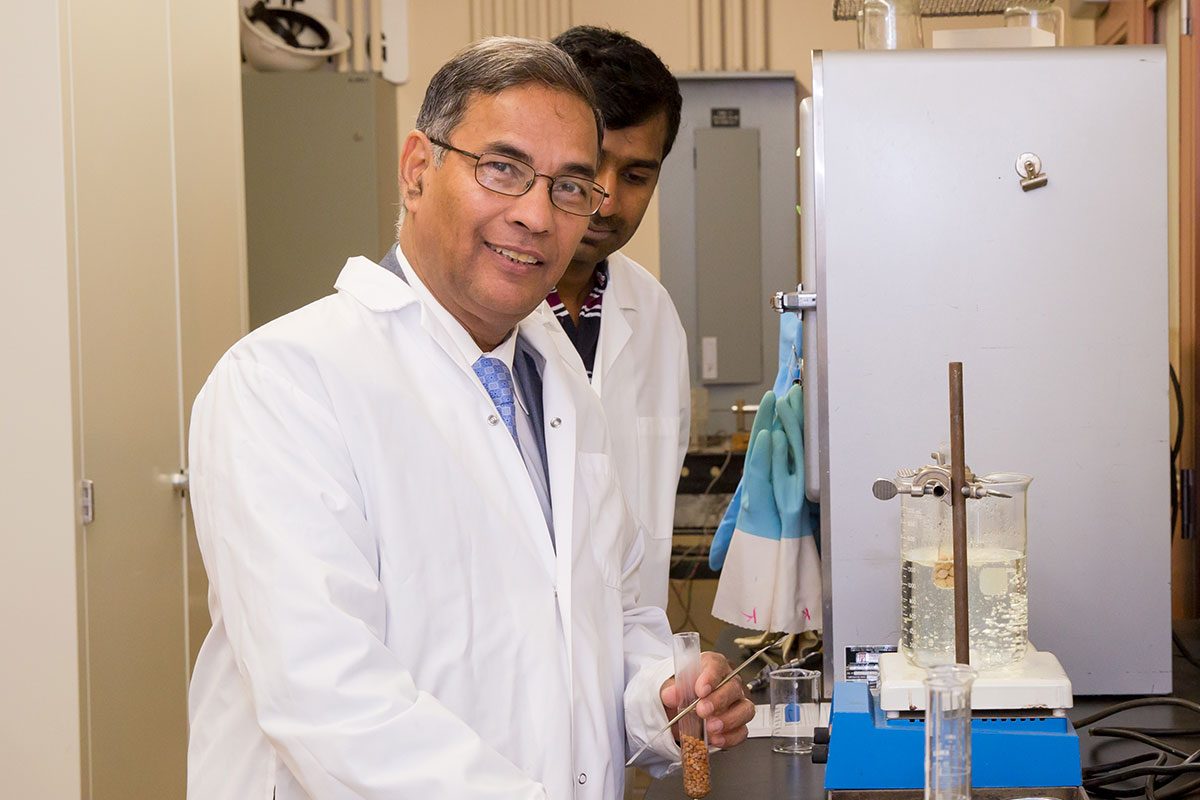
Distinguished professor and vice-president (research and international) Digvir Jayas.
A perfect square for Jayas
Distinguished professor and vice-president (research and international) Digvir Jayas has achieved a milestone many academics aspire to: he has authored or co-authored 400 (20²) peer-reviewed articles.
His first refereed article was published in 1983 and appeared in the Canadian Agricultural Engineering journal. His milestone article is titled: “Physical properties of hemp seeds: clean and containing dockages” and was recently accepted for publication in Applied Engineering in Agriculture.
“This is a truly significant milestone that not many scholars achieve, and certainly even fewer achieve it while carrying the administrative roles Digvir Jayas has carried,” said David Barnard, president and vice-chancellor of the University of Manitoba. “He has made a huge commitment to serve the academic community through external organizations’ boards and committees and provides practical advice to individuals, governments, and a range of organizations. Congratulations to our colleague and friend for an outstanding achievement.”
Most of the publications deal with drying, handling and storing of grains, oilseeds, and pulses; and digital image processing for automation of grading and processing operations in the agri-food industry. He has collaborated with researchers in several countries and has had significant impact on the development of efficient grain storage, handling and drying systems in Canada, China, India, Ukraine and the U.S.
“I am proud of this accomplishment, made possible due to hard work of nearly 100 graduate students and postdoctoral fellows who have chosen to work with me over the years,” said Jayas. “I have been privileged to have supervised these individuals and sincerely thank them for their contributions to my research program.”
Farmers and grain storage mangers use his research results in Manitoba, Canada and globally. Designers of grain storage and handling facilities use his results to design more efficient storage and handling systems around the world using his data, which are incorporated into American Society of Agricultural and Biological Engineers standards.
Conservatively assuming that his research has contributed in reducing spoilage losses by two per cent globally, is equivalent to adding 60 million tonnes of grains for human consumption (nearly equal to the total amount of grains produced by Canada). A two per cent savings in grains is more than 2 per cent increase in yield because scarce farm inputs (e.g., fertilizer, water, fuel) are not used in preservation processes.
Research at the University of Manitoba is partially supported by funding from the Government of Canada Research Support Fund.







***Congratulations Dr. Jayas***
You are our role model!